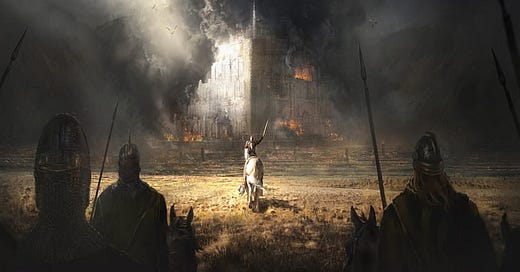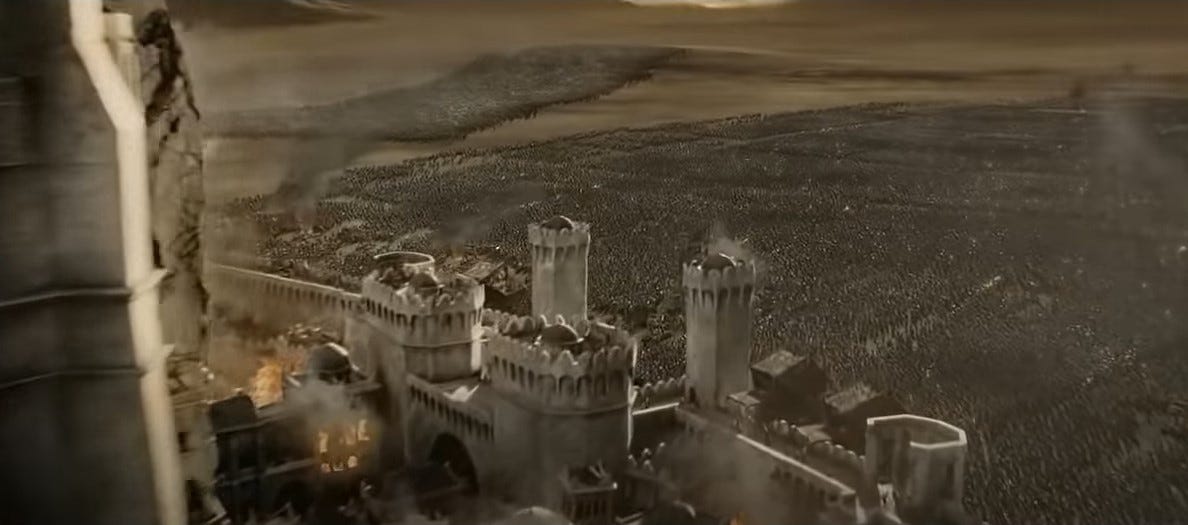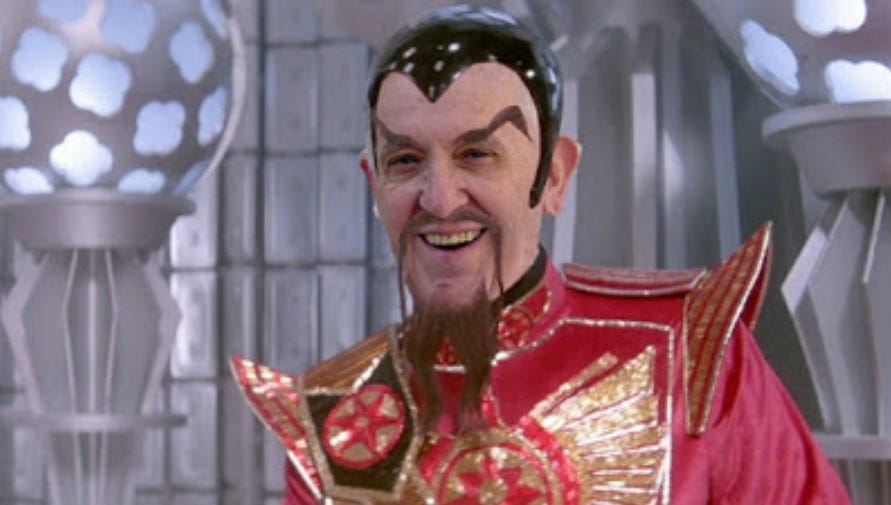We’ve accepted the reality of life in a hostile world...
If we were born after Vatican II, and one way or another have come to live in the Traditionalist Catholic world, it seems we have come to accept certain current realities and have ceased to deeply analyse them. We know there is a grave divide between what went before and the “Conciliar Church.” And that means the mainstream Catholic institution, that has fully accepted and adopted not only the actual contents of the signed documents of Vatican II but all that proceeded from the Council ideologically and in practice and all that was done in the Council’s name, whether legitimately proceeding from it or not.
We see the divide manifested sharply. We see Masses, even in “good” parishes, featuring as a matter of course paraliturgical ceremonies like “bringing up the gifts.” We see laymen doling out Holy Communion – the Sacred Species that Catholics of former times barely dared to gaze upon – like a breakfast bagel at Subway into the congregation’s unconsecrated hands. We hear homilies about “religious liberty” and ecumenism - to say nothing of homosexuality, divorce and contraception – that would have left a congregation of 60 years ago stunned into silence. And we have a laity who in the great majority are so wholly ignorant of even the most foundational concepts of the Christian Faith that all these enormities go completely unnoticed.
For an audience like the one at this publication – this isn’t the 101 class – I hardly need to produce a comprehensive list. But we who have recognised this crisis, if we are too young to remember the time before, will inevitably take for granted certain realities. We simply accept as the current reality that seminaries are empty or so corrupted only a fool would send his sons there; that bishops cannot under any circumstances be trusted to accurately transmit doctrine; that the Boomer-era sisters from the local convent – if there still is one – are the mortal enemies of the ancient Faith to which we adhere.
...and have now become a people preoccupied with mere survival...
We have accepted a life in a permanent condition of siege, of ecclesiastical lockdown, distrustful defensiveness against our own institution as well as the secular world, and teach the next generation, whether children or converts, to expect this condition to last all our lifetimes.
And now, with the advent of the Bergoglian age, we only wonder how long we can hold out, are our current resources sufficient to outlast him and whoever will come next? How can we build these resources up to survival levels under these conditions? Will they last to the end of the lives of the next generation? Or will the constant barrage of propaganda and hostile pressure turn them before the end? Is the community inside the besieged town self-sufficient enough – do we have enough of our own publishing houses, home-school materials, lay organisations, communication networks ... and above all priests to provide the life-giving Sacramental life... to last the course, however long it may be?
Our friend Peter has published a series of three articles – “Transitioning from a time of peace to a time of struggle” – laying out our current situation quite well, and in the third, setting down some practical ideas for going forward. He compares our current situation with our previous times of persecution under the whims of Roman Emperors, English Protestant monarchs and Japanese warlords.
Peter points to the good news, that we’ve been here before and within living memory, but that “this time around, there are very many more of us—millions of laity and thousands of TLM-loving priests and religious across the globe.” And we are no longer the trusting naifs of the 1960s, trained from infancy in blind obedience.
Catholics who are still Catholic have largely wised up:
“We occupy positions within seminaries and chanceries. In certain cases, we have good rapport and even influence with bishops who appreciate our fidelity, zeal, intelligence, and love for Christ and His Church. We have cornered the market on scholarship and intellectual credibility: for any one book written by a progressive, there are ten better ones written by conservatives or traditionalists.”
And he points out that while those who are attacking appear stronger in numbers and positions of power, they are in fact weakest in the most fundamental way: “In the Church, at least, the liberal agenda is tired, ageing, and lashing out with the energy of an animal in extremis.” We needn’t belabour the point everyone is aware of, that their strength is only in brute power not in the substance of their belief. On that score the strength is all on our side.
While the battles will certainly flare up around the world – individual priests and bishops, seminaries and convents (especially convents of nuns) are going to be particularly vulnerable – our ordinary duties as Catholics will remain the same: “to believe in, to follow, and to bear witness to Christ, even at the cost of life.”
But the bottom line is that we are now a people whose concerns have in the main been reduced a struggle for bare survival, while a genocidal force camps outside our front door. A force that is now finally bragging openly about exterminating us and literally wiping the memory of the things we believe from the face of the world. With his latest action, this pope, in what amounts to a self-parody of Ming the Merciless, has finally issued the threat of all cartoon tyrants: “Join us, or die.”
I am reminded of a recent movie in which a surviving remnant of humanity lives in an enormous fortress-city against a whole world of ravenous zombie hordes. Is there even any question of growth or flourishing – never mind evangelisation – under this condition?
In fact, I think there is.
In a war of ideology, the strongest weapon and the greatest defence is knowledge
Is it any wonder we don’t spare much thought or effort to learn how we got into this terrible state of affairs? The history of the Traditionalist movement after Vatican II – and the lead-up to that epoch-making event – is well documented, albeit in books that are now often difficult to find.
A great many people came to the Traditional Mass (if not the fulness of the Faith that goes with it) since the promulgation of Summorum Pontificum – even I was recently astonished at the numbers of diocesan TLMs that had come into being since 2007 in the United States, where the growth was strongest.
Even in more Faith-hostile Britain, SP stabilised a situation that was often very precarious, especially in the “provinces” away from London and other large urban centres. It created a much more open environment for priests and even bishops to promote the Mass – if not to resolve some of the more awkward theological issues attached to Vatican II.
At the very least it made it possible for the less stalwart, more timid Catholic to consider making the switch which for many was like a re-awakening of Faith. It cannot be denied that the tremendous growth of the old Mass, and the transcendent “message” the liturgy itself contains, in the Anglo 1st World nations is an unalloyed good. Without 14 years of Summorum Pontificum – however inadequate it might have been – we would not be in the strong position we are now to withstand the new onslaught1.
Some of these thousands (millions perhaps?) of “new Traditionalists” no doubt came in response simply to an attraction to the beauty, solemnity and transcendence they saw in the old Mass that they were not finding in their local Novus Ordo parishes. And this cannot be sniffed at by anyone sane.
“one had to fight one’s way into Tradition”
But it has also created something of a problem. In the times of suppression, of an effectively underground Church that was the norm in the period immediately after the promulgation of the New Rite, one had to fight one’s way into Tradition. One had to struggle interiorly, coming to grips with the lack of good will of our superiors in the Church, the sheer sordidness of the underhanded and dirty politics that went into the whole business – both of the New Mass itself and Vatican II overall.
And that led to many having a serious crisis of Faith, a major struggle with previously held, often childlike assumptions about the nature of the Church, our conception of obedience. It was nearly always accomplished by a drive to learn what happened, to seek out original sources on the transition from the pre-Conciliar to post-Conciliar Catholic situation. One thing that characterises Traditionalists from that time above all is their knowledge. Challenge a Trad with that struggle behind him on any of the standard “hot button” issues – vernacular languages, “altar girls,” Communion-in-the-hand, laity routinely handing out Communion – and he will likely steamroller over the poor unsuspecting, ill-educated novusordoist.
He will cite from memory chapter and verse of the conciliar and post-conciliar Vatican documents; he will tell you the names and national origins and actions of the key players, from Suenens and Willebrands, Ottaviani and Lefebvre, to the clerical journalist cadres like the Redemptorist Francis X. Murphy, who recorded all the Council’s doings (from a progressivist perspective) as “Xavier Rynne” - and all the intricated details of how the entire saga played out. One thing that Trads of this kind can be justly accused of is “’satiable curiosity”. He is someone who has observed the impossible contradictions between the old and the new Church, and could not rest until he knew and understood the truth.
Similar accusations can often not be justly levelled at the recently incoming former adherent of the New Rite.
As Dr. K. said, “I find that few who attend the TLM in our times—especially young people and young families—are well acquainted with the long-drawn-out battle to save the Latin Mass against unbelievable odds, with barely any resources, motley troops, and precious few leaders. We need to know our history.”
“Our greatest danger lies in our having become soft.”
Let’s face it: modern Western people are soft. Generally speaking, our lives are easy, comfortable, and convenient, with suffering excluded wherever and whenever possible. We are surrounded by mesmerizing and entertaining technology that lulls us to contentment. We have a thousand reasons and ways to put off “extra” work, “needless” suffering, and “inconvenient” impositions.
More specifically, many young trads today were born with a silver spoon, so to speak—into a parish run by the Fraternity or the Institute, or into a diocese where young clergy were bringing the TLM to their parishes. In parts of the world where bishops implemented Summorum Pontificum or at least refrained from blocking it, we’ve enjoyed the availability of Masses in multiple locations, perhaps within easy driving distance. Sometimes we can choose between a High Mass here and a Solemn Mass over there. In such areas, Catholics have come to enjoy, and to count on, plentiful access to Catholic tradition.”
Those of us, then, who have never had to “fight for the rite” may not yet be the tough men our forefathers, who persevered in the midst of hopeless conditions, had to be.
While there’s nothing wrong with (to the contrary!) an instinctive attraction to the beauty and obvious mystical significance of the old liturgical rites, a Catholic who depends on those subjective feelings alone is going to be at a disadvantage when his adherence is challenged with plausible-sounding objections.
We cannot love what we don’t know.
Now, in keeping with our friend Mary’s valuable admonition that my offerings here are bit long, I’ll leave it here with an admonition of my own: get reading. We want to know how we can defend the incomparable treasures of Faith we found – perhaps for the first time – in the old rites? We want to know how we can contribute to the struggle to preserve it? No army can come to victory on bad intelligence. Before anything else, we must know.
Learn. Read and find out WHY we are in this situation.
I always say there’s a reason for the specific order of operations in the catechetical exhortation about the meaning of human life: “To know God, to love Him, to serve Him in this life and be happy with Him forever in the next.” We cannot skip a step. We cannot love what we don’t know. Knowing truth – any kind of truth, historical, scientific, theological, et al – is a step toward knowing God, who is the Author of all truth and, in the Incarnation, is in fact very Truth Himself. God did not create you with the intention of you knowing Him only a little bit, but for you to use the absolute fulness of your ability to know Him and His truth as much as you are capable of in this life.
To defend ourselves, and future generations, against the onslaught we are now forced to endure the first, most important step is to KNOW IT. And that means especially in our context, to know its history.
Dr. K said here that the time has come to imitate our forefathers, to resist and never give up, to learn from their struggle and do what they did. I will reiterate his call to learn everything we can about what was done to us and why and by whom.
It will often not be an easy or sweet pill to swallow; there will be struggles to accept the depth of evil and treachery you will find in that history. You might be faced with new temptations against Faith that you have never encountered before. In such cases, you can turn to your fellows and ask for support in prayers and counsel. We’ll be here, ready to do whatever we can.
But I would say that if you want to be a fighter for the Truth of the Faith you have acquired, there is no other way.
(In order to avoid annoying with too long a post, I’ll work up a reading list for beginners, and include some videos, in the next post.)
Laudetur Iesus Christus
et Benedicite...
Of course it is also true that it was this same incredible burst of expansion – in head-spinning time – that prompted the renewal of hostilities from Rome. Miraz was shocked at the numbers and strength of the Old Narnians still living in hiding in what he had thought was a long-conquered, thoroughly Telmarinized, Narnia.









I grew up hearing all about this stuff. So much so that I never read the books -- Trojan Horse in the City of God, Iota Unum, etc. etc. that lined the bookshelves. Indeed it became extremely wearisome in that my parents and their friends had few other topics of conversation.
Still, I never doubted that they were right--the NO, when I first encountered it at 5 years old (we had moved to a new town, where there was no JPII "indult") left me uncertain whether the family had left the Catholic Faith! There was never any doubt in my mind that something very important was lacking, even though the NO priests we knew were reverent and orthodox. And recently I've picked up and started reading those boring old tomes (not so boring after all--and highly relevant to today).
Now that I realize more clearly what they went through, I'm no longer surprised at the intensity of emotion and fixity of resolve of my parents and their friends. Their world was torn apart. And they hadn't been prepared for it by years of cautions and warnings about bishops encouraging heresy and cardinals being light in the brogans. But they weathered the shock. They hung on. They read the books. They warned their kids. We know what we do because they didn't collapse like lawn-chairs.
Now it's our turn.
I've heard it's good, but if I had to educate myself at this point by starting out with Iota Unum, I'd never get anywhere. Let me recommend the author whose writing, I think, is most accessible to regular people like me: Michael Davies.
I was pleased to see that his trilogy is still in print, and not a bad price for three hardbound books:
https://angeluspress.org/products/set-the-davies-liturgical-revolution-series
One last note: I started out with Vol. 2, "Pope John's Council", which is packed with action and kept me interested, so I wasn't even tempted to put it down. They needn't be read in the proper order, in my opinion; in fact I'd recommend 2, then 3, then 1.